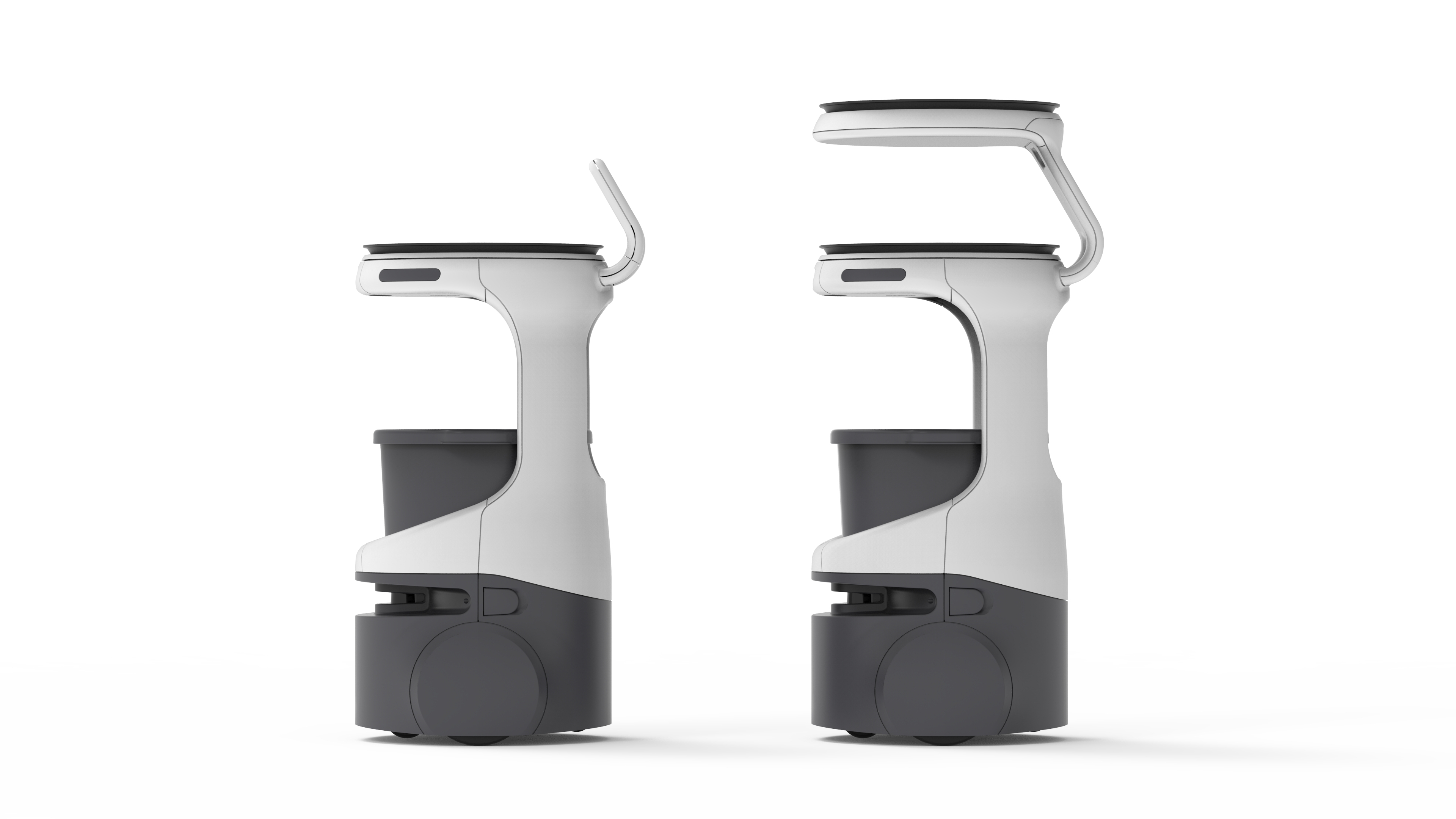SoftBank has been quite bullish on Bear Robotics this year, beginning with leadership in a $32 million Series A back in January. It’s easy to see why the investment firm believes that this is the breakthrough moment for the Bay Area-based startup, as the COVID-19 pandemic has led to economic and labor issues around the world — not to mention all of the mandatory social distancing.
Labor has, of course, been an issue in Japan for some time, courtesy of a shrinking population, low birthrate and a confluence of other issues. The on-going global pandemic, meanwhile, hasn’t done much to move the needle in the right direction. This week, SoftBank detailed plans to bring Bear’s Servi robot to the country in an effort to address restaurant labor issues.
Priced at $950 a month, as part of a three-year lease plan, the robot is set to arrive in Japan in January. The robot is a mobile serving station designed to replace or augment weight staff in a restaurant. Each unit is capable of holding two serving trays and a bin for bussing dishes after serving.

Image Credits: Bear Robotics
There’s LIDAR for navigation and an on-board touchscreen — or else it can be operated remotely via tablet. Each system is capable of operating anywhere from eight to 12 hours, per Bear’s specifications. It’s a fairly simplistic system, as far such things go, lacking the humanoid design of the Pepper robot or the more sophisticated quadrupedal robots of Boston Dynamics — both currently a part of the Softbank Robotics group. But when it comes to robotics, often times the simplest approach is also the best.
Comments
Post a Comment